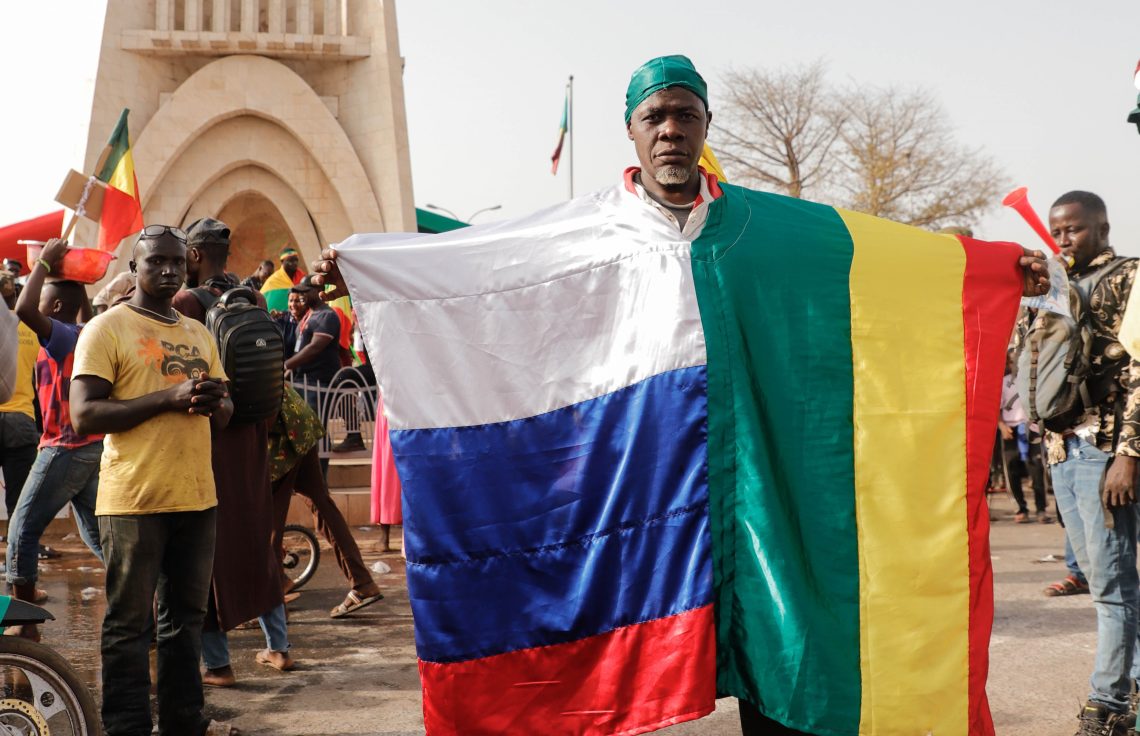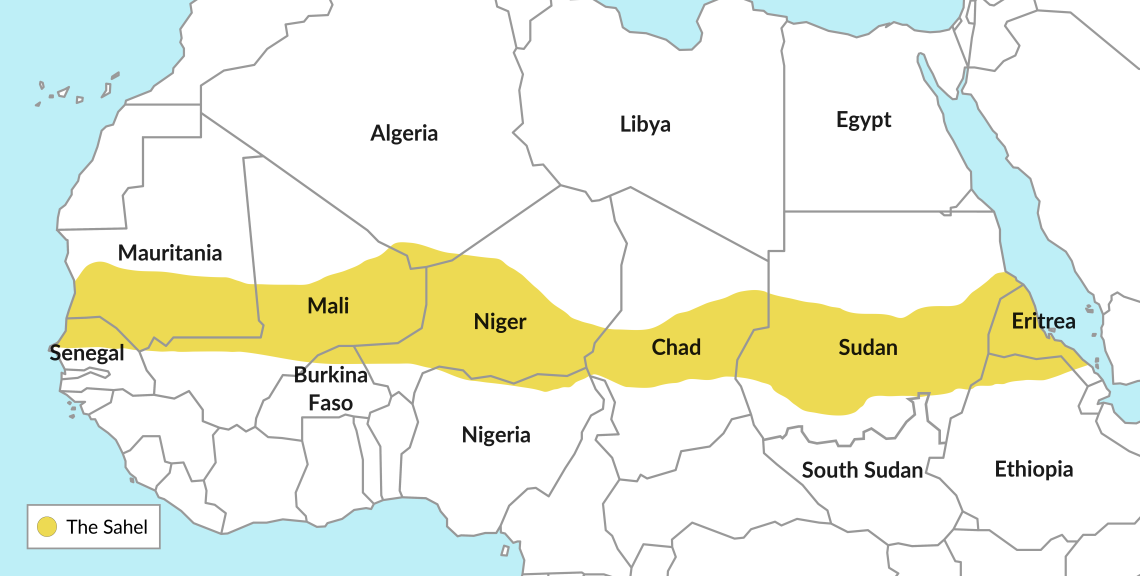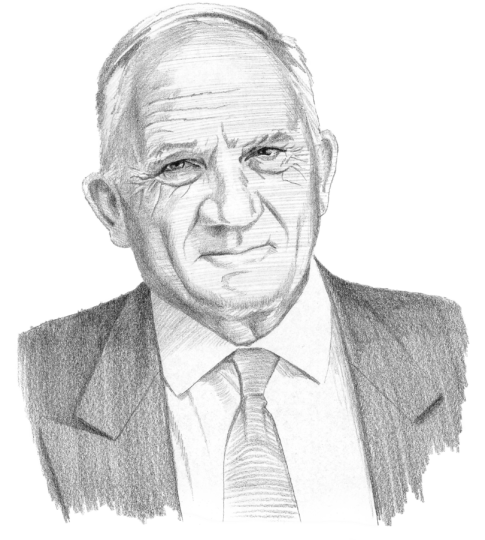Russia will unleash chaos in the Sahel
In the fight for influence in Africa, Russia has outpaced France. But will Russian forces be able to stabilize a potentially explosive security situation?

In a nutshell
- The Kremlin’s propaganda campaign has turned the Sahel against France
- Russian troops are joining forces with dangerous militias and regimes
- This power vacuum will leave the African continent at risk of destabilization
On February 3, at the Gare de Lyon in Paris, a Malian citizen wounded three people by attacking them with a knife and a hammer. The man, who had legally entered Europe through Italy, regularly posted TikTok videos in which he declared his hatred of France, cast as a former colonial power that had plundered his country and reduced it to poverty. More importantly, in the videos he pledged allegiance to Russian President Vladimir Putin, who he described as a reliable and selfless partner for Mali and all of Africa.
The attack highlighted how successful the Kremlin’s intense lobbying in Africa has been, particularly in the Sahel region. Europe has yet to come to terms with this reality, but Russia has undeniably established a strong foothold on the continent.
Will Russia be able to maintain its presence in Africa?
For at least 10 years, President Putin has tried by any available means to make inroads into Africa and to dislodge historically entrenched colonial powers. Through social media and troll farms, Russia has fanned the flames of anti-French resentment in the Sahel.
In Mali, surveys show that some 84 percent of the population has a positive opinion of Russia. Conversely, anti-French propaganda has been in full swing since France’s intervention against jihadism (2014-2022) got bogged down, with Paris frequently depicted as an occupying power. Russia has played a key role in promoting this narrative, notably through its French-language RT channel. This propaganda attributes the failure of Operation Barkhane to hypocritical pro-Muslim leanings by Paris. Malians are told that France, despite being severely affected by Islamist terrorism on its own soil, wants to encourage jihadism in Africa.
Moscow also promotes itself as an advocate for traditional social and family values, allegedly opposed to those of Western democracies. Meanwhile, an ever-increasing number of abuses by local armed forces and their Russian auxiliaries are reported in the Sahel, including executions, disappearances of civilians, looting and torture.
Since the departure of French soldiers, some local terrorists like Iyad Ag Ghaly, who was one of the main targets of Operation Barkhane, have been able to stage a comeback. In his first video in seven years, the jihadist leader called for resistance against governments in the Sahel region.
New allies for Moscow
Russian propaganda has not only targeted Mali. According to a 2020 study, 68 percent of young Africans had a favorable opinion of Russia, compared to only 57 percent with a positive opinion of France.
In addition to the 1,600 Wagner fighters currently stationed in Mali, neighboring countries are now also hosting Russian troops. In November 2023, Russian soldiers landed in Burkina Faso. The government made an official announcement declaring “enhanced cooperation” with Moscow. But Russia’s ties to the country’s regime had been forged earlier.
Facts & figures
The Sahel savanna

In October 2022, during the coup that brought Captain Ibrahim Traore to power, the French embassy in Ouagadougou was attacked and the French Institute vandalized. Brand new Russian flags were waved in the streets by protesters. Captain Traore then declared: “Russia is a state like any other. We already have a partnership, as you can see.”
Pretending to fight the jihadist groups ravaging a large part of the country, Captain Traore recruited thousands of civilians for his armed group Volunteers for the Defense of the Homeland. He also enacted a new law allowing him to requisition all young people over 18 years old into the group. But in reality, he has not fought back against terrorism, and there are still two million internally displaced people in the country. Worse, regular army soldiers as well as volunteers are suspected of having participated in civilian massacres.
Russian influence unchecked
The Kremlin is determined to expand its presence in Africa. The continent’s natural resources, its 54 votes at the United Nations General Assembly and its proximity to Europe would provide Russia with a choice ally and a strategic location from which to encircle its European adversary.
Through its attempts to discredit France in Africa, Russia is targeting all of Europe. The discourse disseminated by Russian covert forces is as follows: France supported illegitimate and corrupt rulers, such as Gnassingbe in Togo or Deby in Chad, to allow jihadism to spread.
It is true that the French stance on Islamic issues has been inconsistent, often changing with the political tides. At times, France has actively opposed certain Islamic practices or groups, while at other moments, it has engaged cooperatively with Muslim theocracies like Saudi Arabia. But this back and forth is nothing compared to the blatantly exploitative policies of Russia. For example, according to recent sources, Russia has siphoned $2.5 billion in earnings from gold mines out of the continent since 2022.
More on the Sahel
In early 2024, it was Chad’s turn to embrace Russia, moving away from its historical alliance with France. The transitional president, Mahamat Idriss Deby Itno, announced on January 24 that Chad now considers Russia a “brother country.” This declaration came during a meeting with President Putin, who promised that Moscow would assist in stabilizing Chad’s internal situation.
Chad, where the French army still maintains a contingent, was France’s last privileged partner in the Sahel. The Chadian army is broadly acknowledged to be a cornerstone in the fight against jihadism in the region.
At a time when Senegal, known for its democratic stability, is grappling with significant challenges, and when jihadist movements are expanding their reach into countries like Nigeria and Benin, there is a real risk that chaos could spread. At the moment there seems to be no force able to stop the deterioration of the security situation and the growing influence of Russia on the continent.
For industry-specific scenarios and bespoke geopolitical intelligence, contact us and we will provide you with more information about our advisory services.









